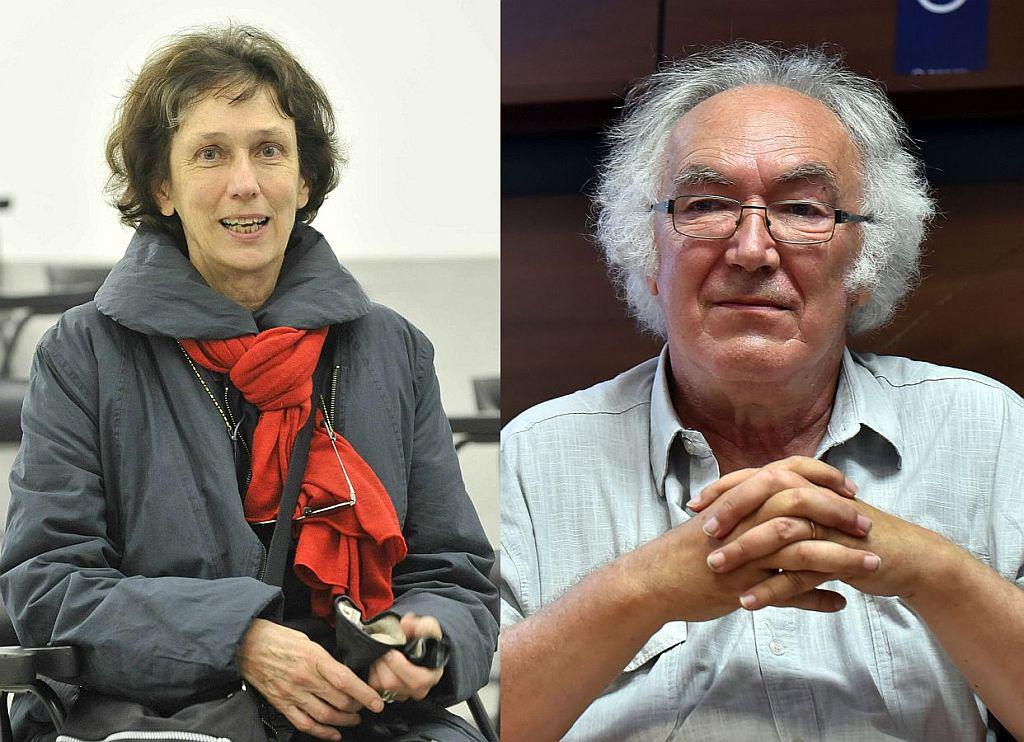
The laureates will traditionally receive the top state award in the field of culture on the eve of Slovenia's Cultural Holiday.
Less than a month before this year's culture holiday, the winners of the Prešeren Fund Awards are also known. The laureates are composer Nina Šenk, awarded for her work in the last two years, and multi-instrumentalist and composer Boštjan Gombač, who will receive recognition for his outstanding contribution in crossing the boundaries between musical genres with the RTV Slovenia Big Band orchestra and the Concert atelje. This year’s winners are also writer Mojca Kumerdej, awarded for her novel Kronosova žetev (The Harvest of Chronos), composer Mitja Vrhovnik Smrekar for his musical-scene opus in the last two years – especially for putting Shakespeare's sonnets into music, Tomaž Lavrič for his published comics from the past two years and his trilogies Lomm and Tolpa mladega Ješue, and architects Lena Krušec, Tomaž Krušec and Vid Kurinčič for their work in the past two years.
The Prešeren Fund Committee broke with the tradition of announcing the names of the laureates at the Prešeren celebration on the 7th of February. This year, the names were announced less than a month before the event.
Metka Krašovec, an indispensible element of the mosaic of Slovene fine arts
The academic sculptor and graphic designer, Metka Krašovec, will receive the award for her outstanding and recognizable painting opus, which is, together with her prints and drawings, an indispensable element in the mosaic of the Slovene fine arts.
Krašovec was born in 1941 in Ljubljana. She graduated in painting in 1964 at the Ljubljana Academy of Fine Arts. She has been a member of the Slovene Academy of Sciences and Arts since 2015. In recent years she has entered into a dialogue with poetry – her drawings and aquarelles accompany the verses of poets, such as Emily Dickinson (in the art book Nox portentis gravida) and the poetry of Ciril Zlobec (the collection of poems Ljubezen – čudež duše).
Metka Krašovec has received numerous awards for her work both at home and abroad. At a retrospective marking her 70th anniversary in 2012 at the Museum of Modern Art in Ljubljana, she said that she was always interested in beauty - in beauty as something unattainable. In beauty as something with which she could work, without transgressing towards kitsch, which has always been a great challenge for her. 'As we can see from my paintings, there were many dark periods. Everything I paint derives from my life', stressed Krašovec. Most recently, the artist described herself as a traveler who cuts her own paths, devoting her time to work on paper. She also paints, but at a much slower pace. This is what the laureate said about herself a couple of years ago: 'I function as a disturbance. I have always been a disturbance, but this is my destiny. I cannot be different.'
Aleš Berger, a translator of key authors of world literature
Translator, critic and long-time editor, Aleš Berger, has invaluably enriched Slovenia's arts and culture scene with his diverse linguistic work and holistic view on language. His translating oeuvre is most impressive. He has raised the art of translating, which is still veiled in anonymity, to a publicly recognized level, especially with his work on the most demanding translations – tasks that can be performed only by authentic linguistic artists. Explaining why the award goes to Aleš Berger, translator Primož Vitez wrote that Berger offered Slovenian readers prudent, brilliantly refined and humorous translations of a series of key authors of world literature.
Berger celebrated his 70th birthday last year. He studied comparative literature and French at the Ljubljana Faculty of Arts and graduated in 1970. He worked as a journalist in the culture section of Radio Ljubljana, and since 1978 is the editor for translated literature at the Mladinska Knjiga publishing house.
In his long career Berger has created a comprehensive translating oeuvre and is the one to be thanked that many French and Spanish works are available in Slovenian language. In the late 1950s he also started writing his own work. In 2004 he first published a collection of short stories called Zagatne zgodbe, which was followed by play called Zmenki in 2006. He also wrote a children's play Noji nad Triglavom (2006) and published a collection of poems Nono z Bleda (2010). "They say that in every translator there is a suppressed, unrealized writer. Perhaps there was also one hiding in me. I'm not saying that now I'm a writer. I'm still more the translator. But once I had the urge to try formulate things in a different way, and I was brave enough to do it. I first showed my writing to a friend or sent it somewhere. I then received the encouragement to do something," was Berger's comment last year on the path he had walked until then. His last work is called Povzetki.
Berger received many awards for his work, including for the translation of Queneau's 'Exercises in Style', which brought him the Sovre Prize in 1983. Berger also received a Prešeren Fund Award in 1987 for translating Isidore Ducasse Lautreamont's 'Les Chants de Maldoror'. He still works as a translator, currently only from French language.
M. K.; translated by K. J.

































































